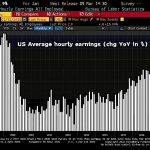
But to measure cause and effect… you must ensure that a simple correlation, however tempting it may be, is not mistaken for a cause. In the 1990s the stork population of Germany increased and the German at-home birth rate rose as well. Shall we credit storks for airlifting the babies?
Neil deGrasse Tyson
As the end of the year rapidly approaches, the stock market records new highs on a daily basis- 22nd record close, 23rd record close, etc, etc. For many years now, the investment world adopted the academic thesis of an efficient market and the premise it is better to own the market than to try and outperform it. As such, institutions (the smart money) and individuals have flocked to index instruments as a way to reduce costs and still earn market returns.
Over the last few months, however, correlations between market returns and specific asset performance have come way down. What this means is people like myself, ahem, the dreaded stock picker, have more opportunities to earn returns different (use your imagination) than what the standard index will bear. Of course, a rising tide lifts all boats and to that end, come on in the water is great, couldn’t be better, right? Not necessarily, as the specific asset you own and its sector makes a huge difference to performance. Now, when the currents get a little stronger, will things be different? Efficient market theorists believe over any long term time frame, stock picking is futile but in the short term anything can happen. What about in 2017 and beyond?
If we turn our gaze internationally and to the bond market, the ECB came out last week and slightly reduced the monthly amount of fixed income purchases but noted they would extend the duration. Domestically, the slow hiss of a major leak in the bond market bubble gets louder by the day as the 10 year yield now stands at 2.464%. Major bond investors believe the bull market in fixed income ain’t dead yet and would note as long you own the bonds to maturity, you capital is safe. Of course, the length of the bond and your willingness to not trade in an asset that loses value daily is the key issue. You may recall many participants love the idea of buying low and selling high, or selling high and buying back low. It is the free market’s way, just don’t tell Mrs. Warren and Bernie. Bonds have been in a bull market for thirty years. With the upcoming implementation of massive deregulation, tax cuts for everyone, fiscal stimulus, capital repatriation, complete write offs of equipment, and plenty more, it is hard to see how interest rates don’t keep going up, maybe gradually, maybe sharply. Either way, hssss, hssss, hsssss.












Leave A Comment